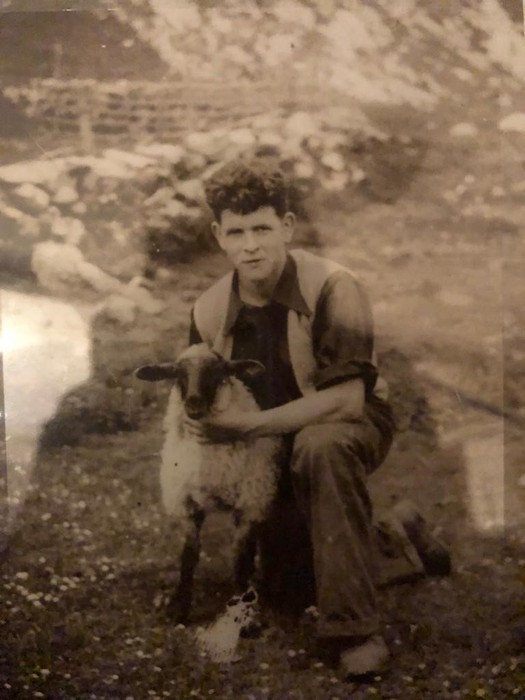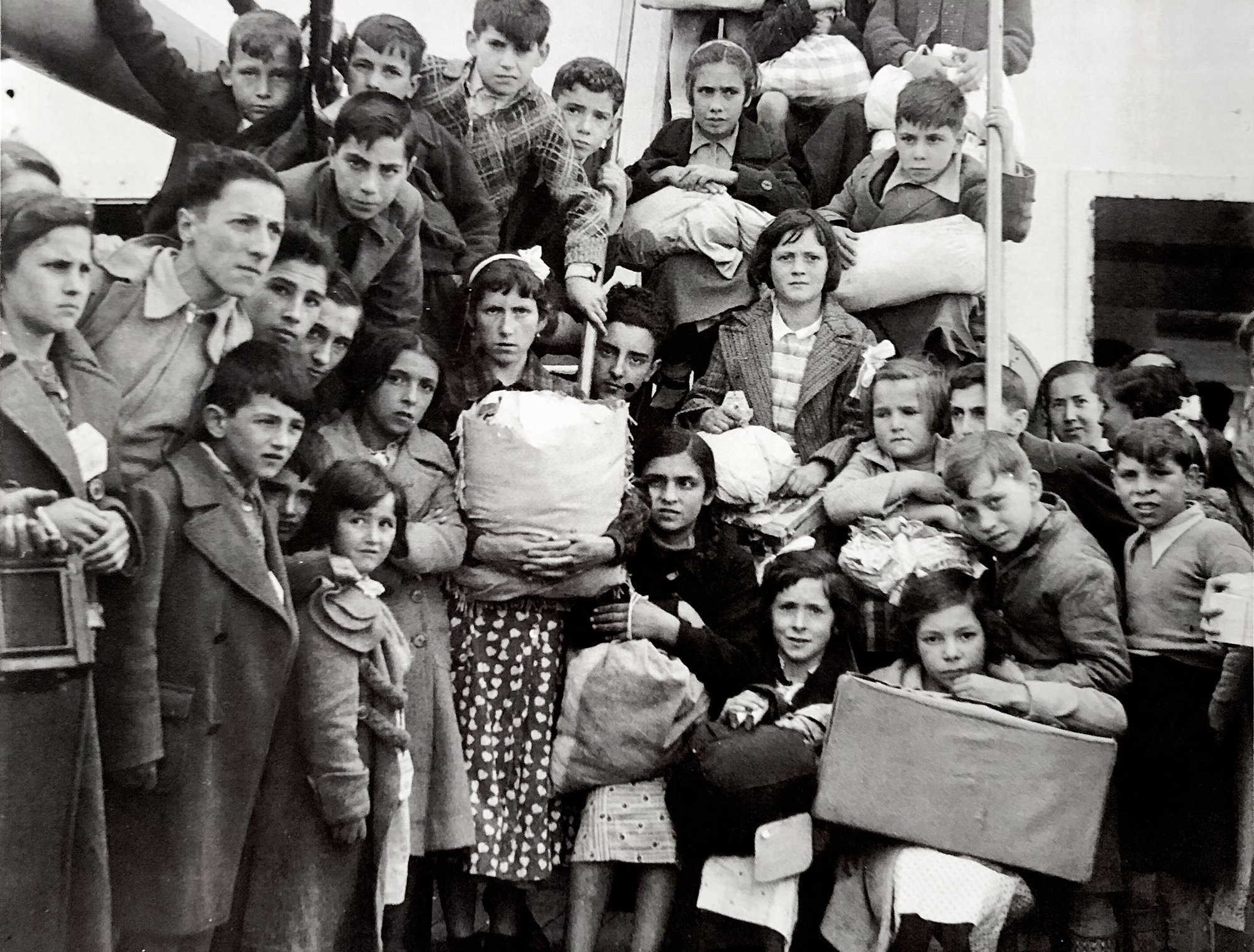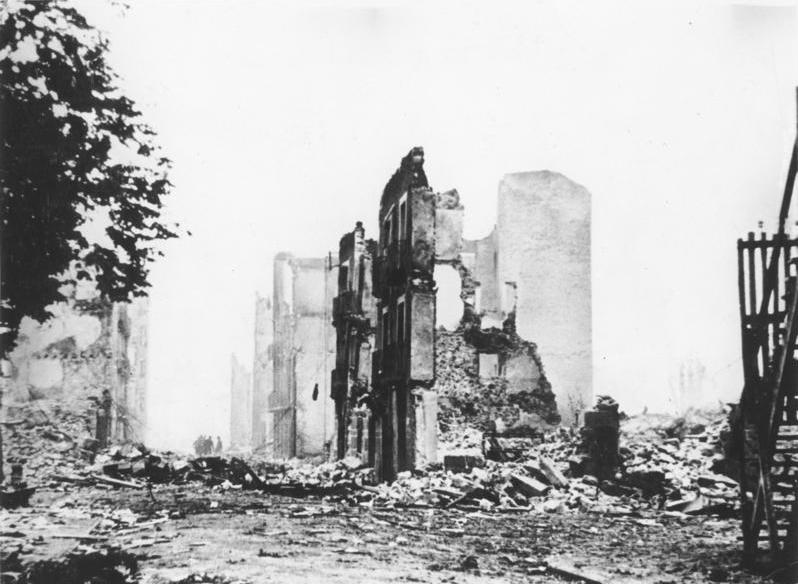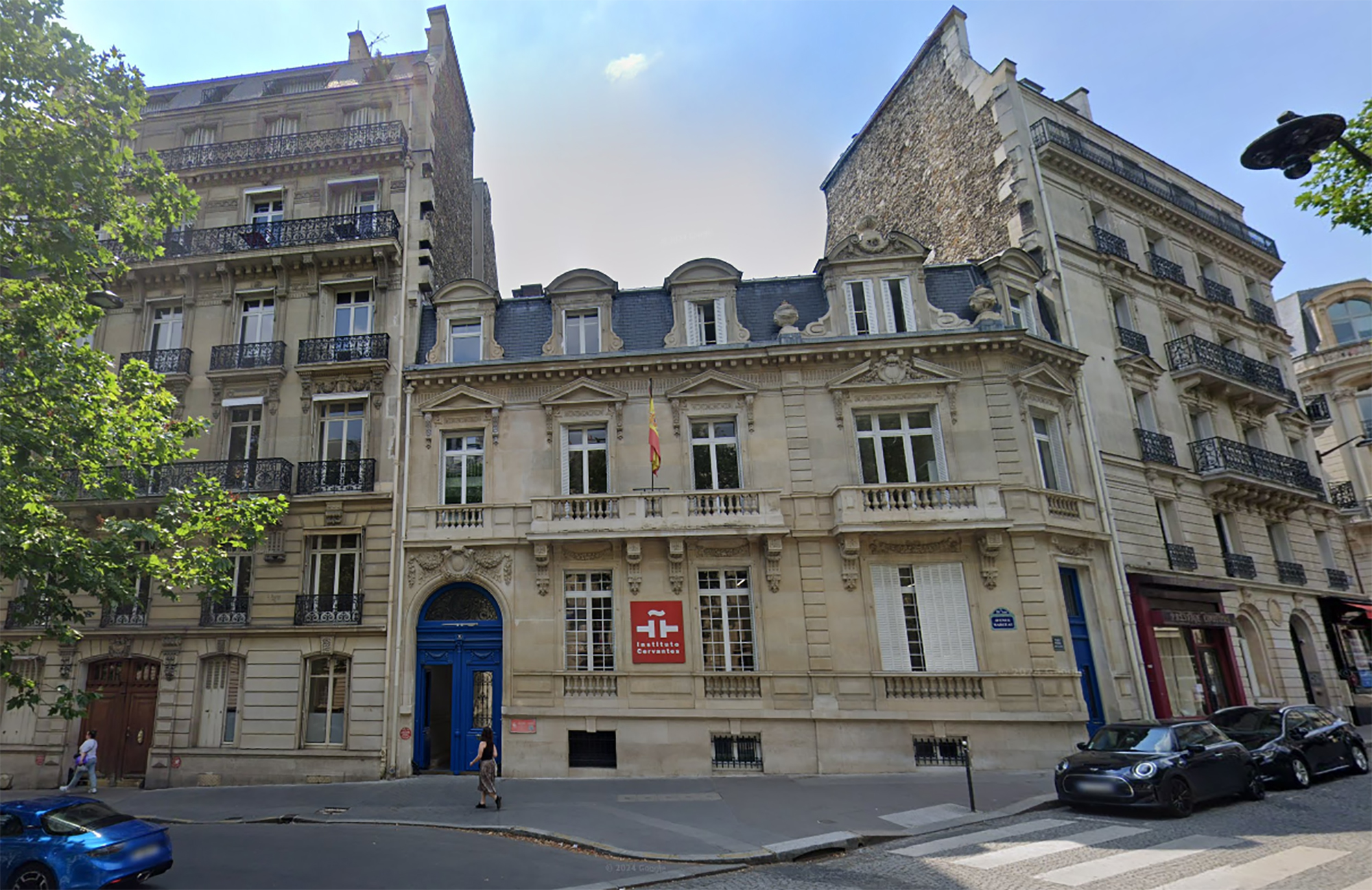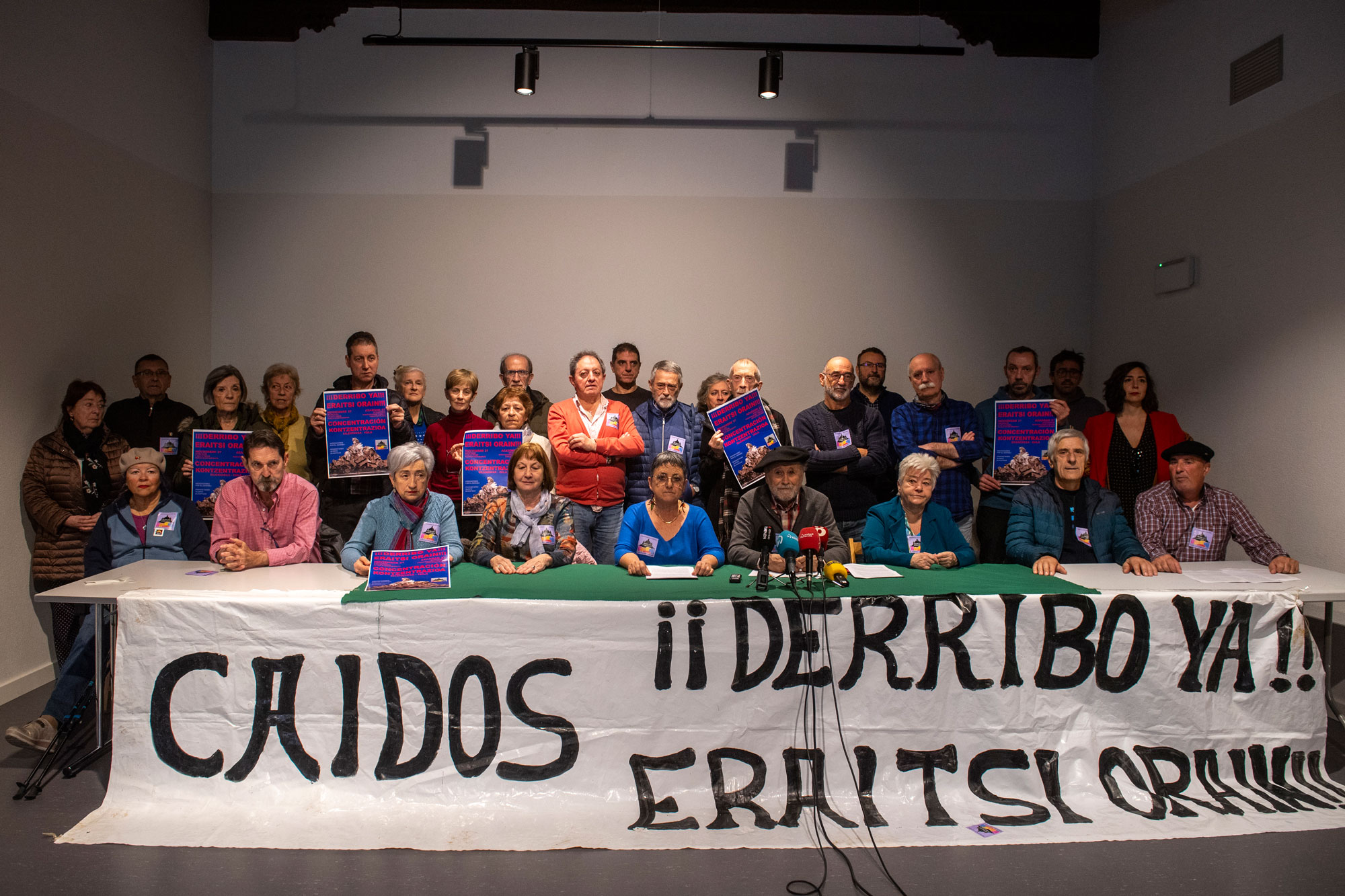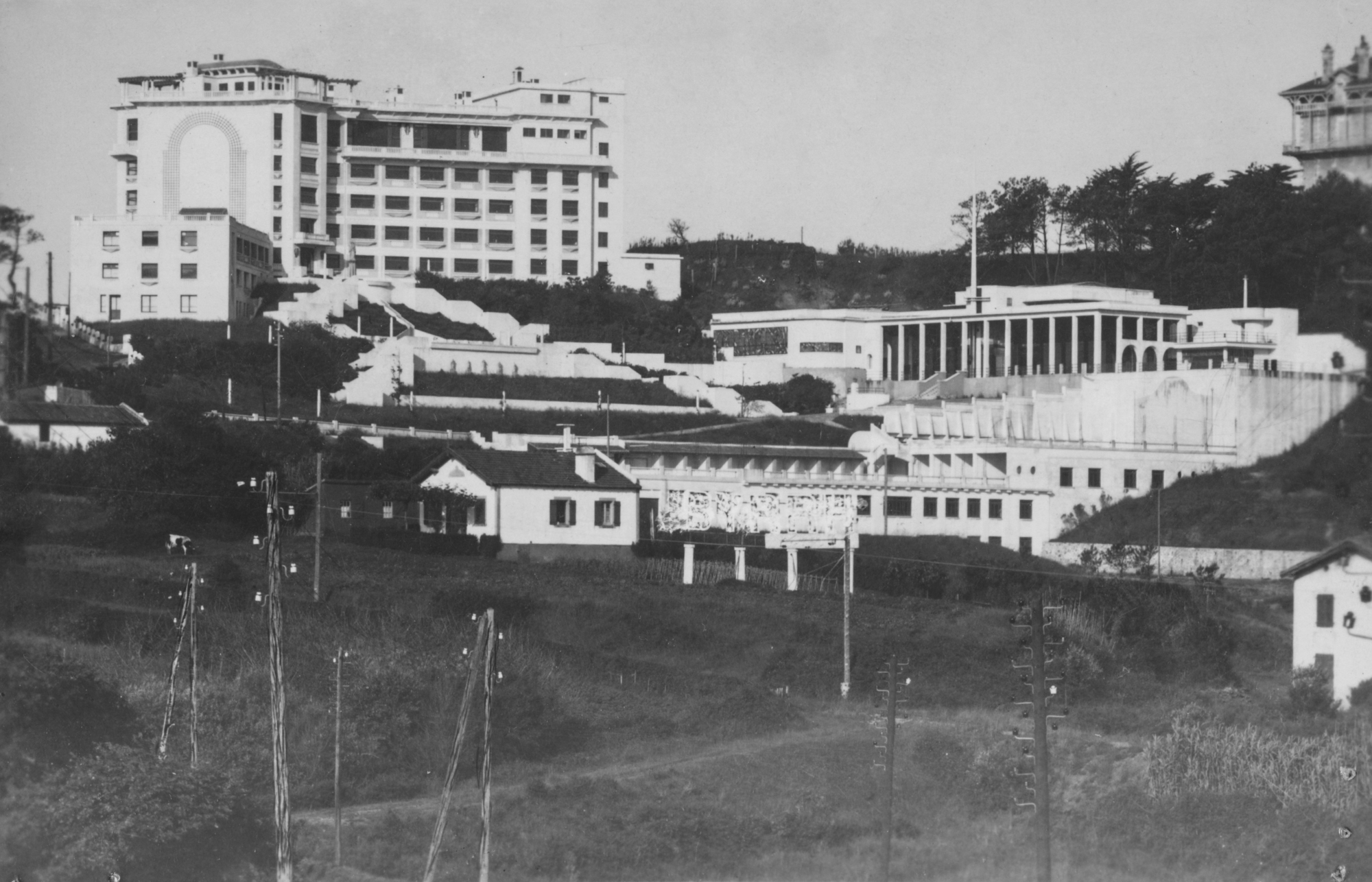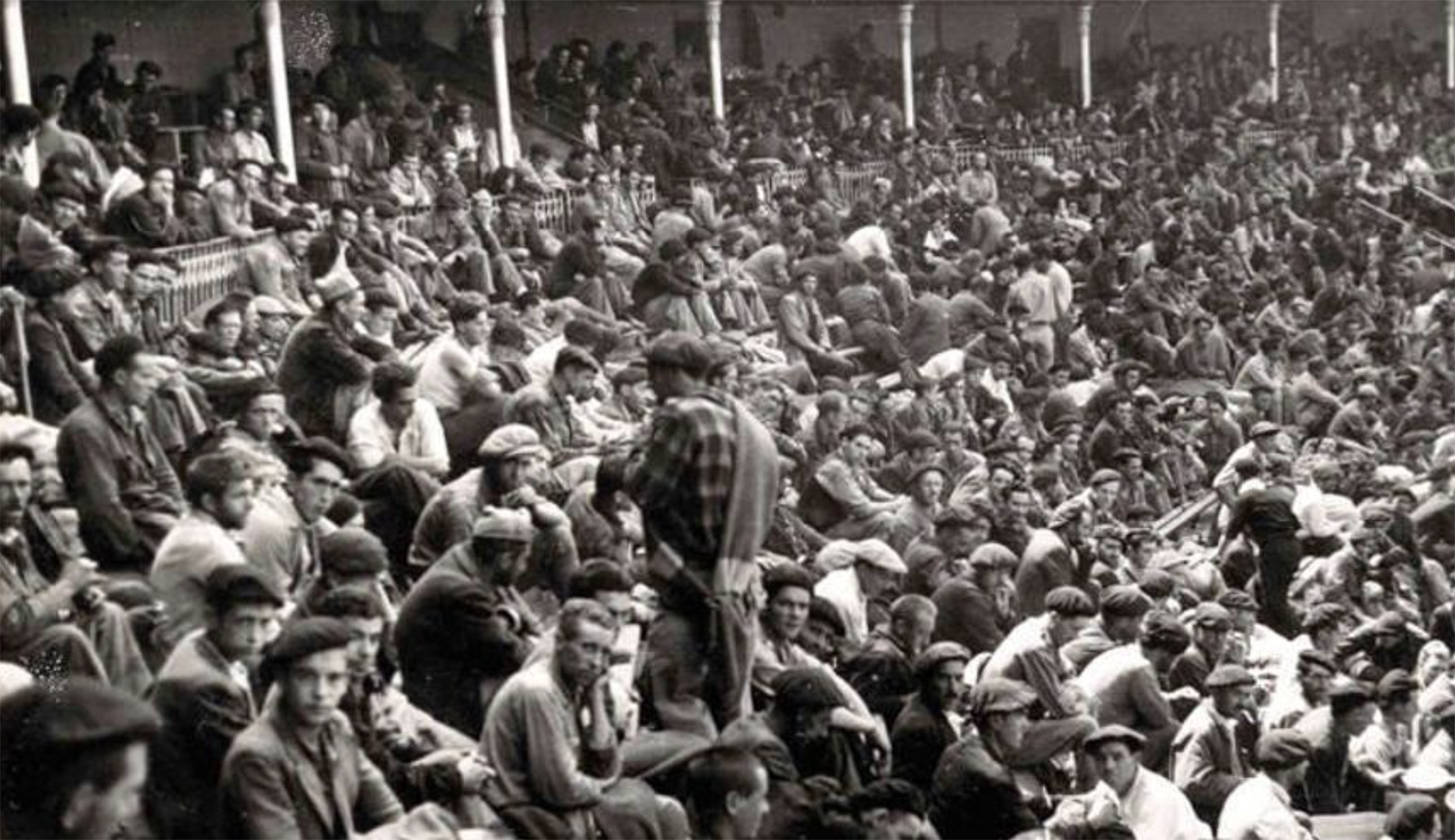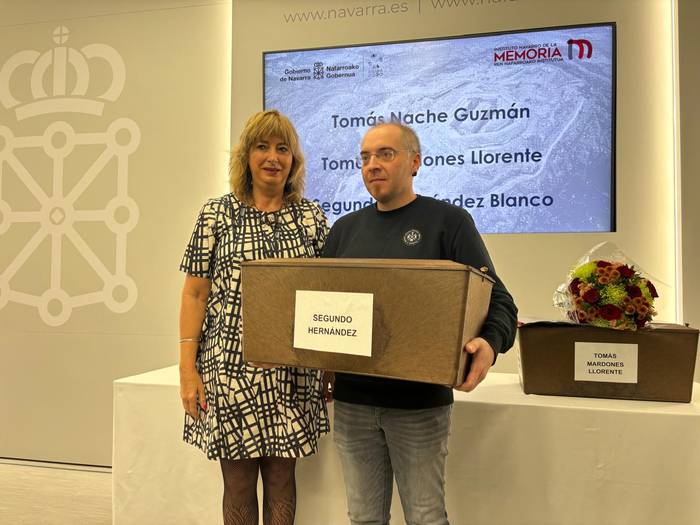To learn the history of the 1936 war around Murugain, we interviewed Joxe Bixente Etxabe, pastor of Degurixa on July 31.
We went to Muzibar town without saying anything, and although the disease was very advanced, there was no problem to tell us about their experiences: Throughout his life he has had a direct connection with his paradise of Degurixa, and there he was with the sheep when the fascist military coup began. He was 14 years old. "Reds and militiamen climbing up and down trucks, Degurixa sowed his trenches in the hills of Álava, and left during the day and night. From there I went to Peñakulo with the sheep."
"Then the military of the days of San Miguel brought them down from Atxorreta. In Bedoña was Larragain's Frentie, the fights were over to enter Mondragon, there were deaths."
"The reddish day of St. Andrew began to get them into Mondrau, they were kamiñoraño allegau. Then they stopped at Mandoain. When I go home at night: Stop! A requeté in Basque: Nungue do? Muzibar baserrikue. They can't grow because they've had a reddish coffin. Take this guy and take him where the Captain al ayuntamiento.Capitanes: Do you have a relative? Bai, bat uncle. My uncle came. You know him, he's my nephew. They left me free, Pasau and Mendire barrels.”
"Saint Lucia was the target of the rebels of the days, and the red fled from Mandoain to Bastergain and Basterrazpi."
"They shot from Larragaina, threw the bullets into the food… They had red in Euzkitza, and others in Olán and Larratxo."
"In the ravines of the river, where is the Meca Gasolinera, three 15 and mediokos guns were installed, the captain was Andalusian."
"Then there was the rush, from Gella to Untzilla, a lot of people died."
"After the war, laughing, the Civil Guard was lying to them in the hut. But one of them gave me part... they put civil guards on me by a stone, put it on me, shot it, one at the door of the gun: We're going to kill you," he said, and then he added. Ez, we're going to kill you because you're young."
Later, when militants from the Basque Country and Askatasuna were in Degurixa, they were helped. Joxe Bixente has gone, but her stories and her humor stay with us.
In the song Xalbadorren heriotzean we say goodbye to Joxe Bizente with a bertso of the songs sung by Xabier Lete.
Where are you, on what meadows?
Pastor of Urepel (Degurixa)
ascend on the slopes
after memories
You escaped.
